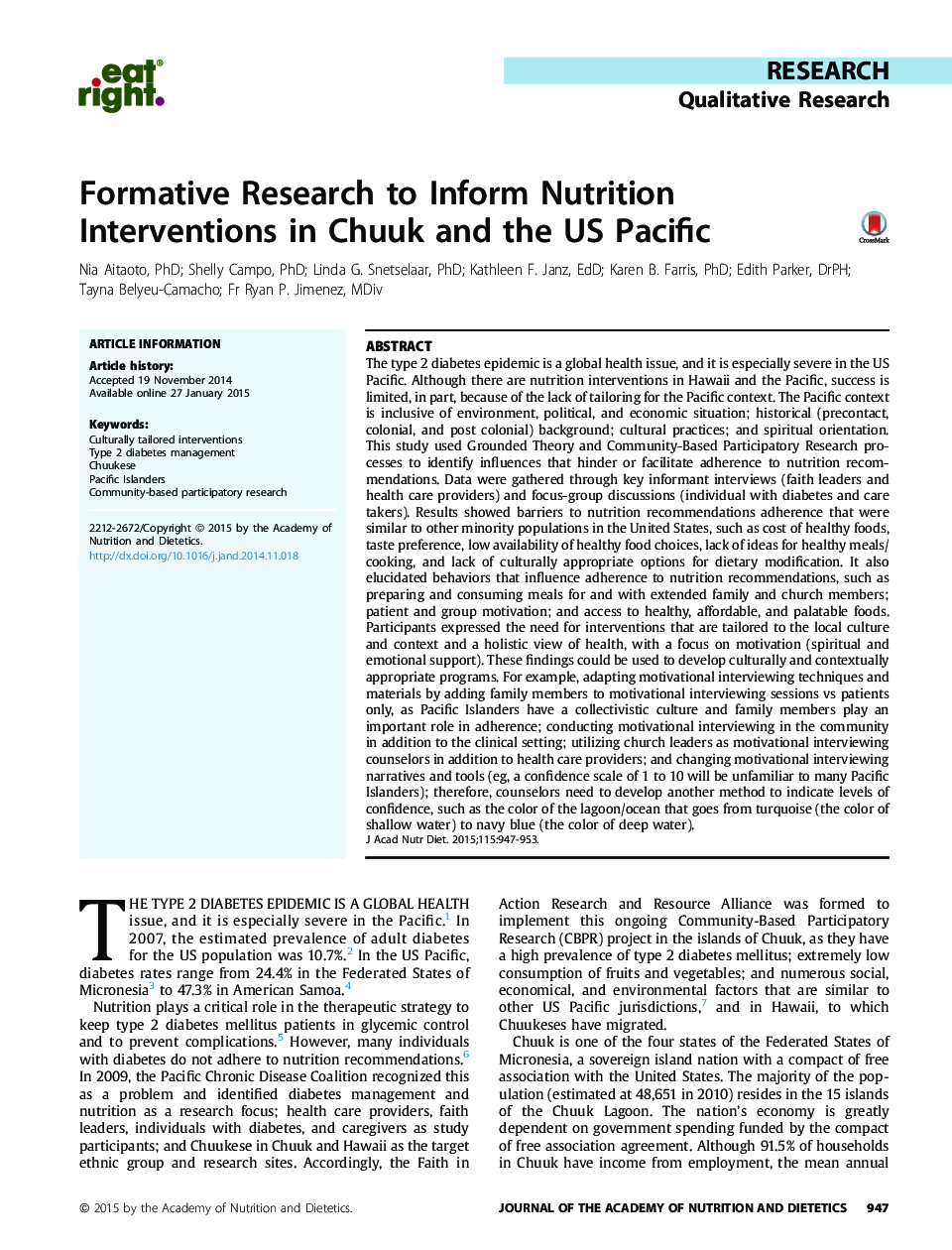| کد مقاله | کد نشریه | سال انتشار | مقاله انگلیسی | نسخه تمام متن |
|---|---|---|---|---|
| 5870101 | 1564049 | 2015 | 7 صفحه PDF | دانلود رایگان |

The type 2 diabetes epidemic is a global health issue, and it is especially severe in the US Pacific. Although there are nutrition interventions in Hawaii and the Pacific, success is limited, in part, because of the lack of tailoring for the Pacific context. The Pacific context is inclusive of environment, political, and economic situation; historical (precontact, colonial, and post colonial) background; cultural practices; and spiritual orientation. This study used Grounded Theory and Community-Based Participatory Research processes to identify influences that hinder or facilitate adherence to nutrition recommendations. Data were gathered through key informant interviews (faith leaders and health care providers) and focus-group discussions (individual with diabetes and care takers). Results showed barriers to nutrition recommendations adherence that were similar to other minority populations in the United States, such as cost of healthy foods, taste preference, low availability of healthy food choices, lack of ideas for healthy meals/cooking, and lack of culturally appropriate options for dietary modification. It also elucidated behaviors that influence adherence to nutrition recommendations, such as preparing and consuming meals for and with extended family and church members; patient and group motivation; and access to healthy, affordable, and palatable foods. Participants expressed the need for interventions that are tailored to the local culture and context and a holistic view of health, with a focus on motivation (spiritual and emotional support). These findings could be used to develop culturally and contextually appropriate programs. For example, adapting motivational interviewing techniques and materials by adding family members to motivational interviewing sessions vs patients only, as Pacific Islanders have a collectivistic culture and family members play an important role in adherence; conducting motivational interviewing in the community in addition to the clinical setting; utilizing church leaders as motivational interviewing counselors in addition to health care providers; and changing motivational interviewing narratives and tools (eg, a confidence scale of 1 to 10 will be unfamiliar to many Pacific Islanders); therefore, counselors need to develop another method to indicate levels of confidence, such as the color of the lagoon/ocean that goes from turquoise (the color of shallow water) to navy blue (the color of deep water).
Journal: Journal of the Academy of Nutrition and Dietetics - Volume 115, Issue 6, June 2015, Pages 947-953